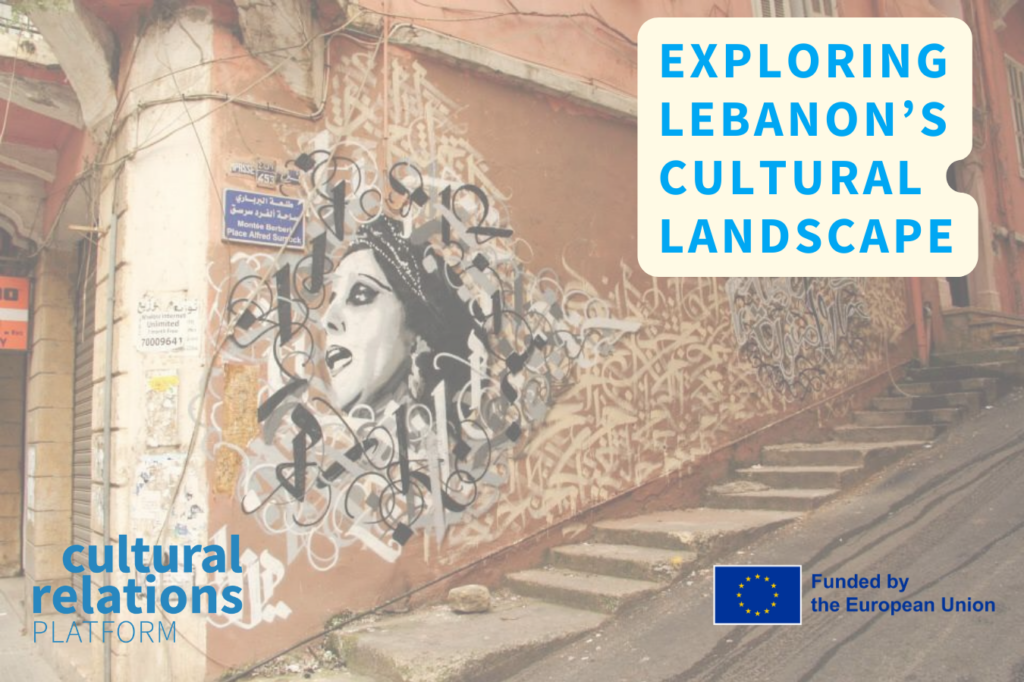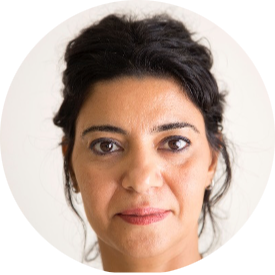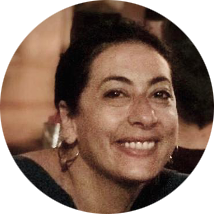Exploring Lebanon’s Cultural Landscape

Since the crisis of 2019, Lebanon has been navigating a path of change and transformation. In the midst of these evolving times and together with the European Union Delegation to Lebanon, the Cultural Relations Platform aims to build cultural connections, promote cooperation, and support the revival of Lebanon’s cultural and creative industries.
Why it Matters Now – A Strategic Path Forward
At the heart of this exploration lies a comprehensive mapping as a recognition of culture’s pivotal role in Lebanon’s recovery and resurgence. Understanding the intricate nuances of these sectors is not only crucial for revitalizing Lebanon’s identity and unity, but also for fostering economic growth and innovation. With its rich diversity of traditions, art forms, and expressions, Lebanon’s cultural heritage holds the key to fostering unity and celebrating its unique tapestry. The study, in this context, takes on a predominant role in shaping a comprehensive and strategic way forward for the cultural sector.
One goal is to position the European Union as a trusted partner for cultural operators and discover strategic avenues for the EU to bolster Lebanon’s cultural and creative sectors. Amidst an ever-changing global context, the ultimate goal is to foster enduring links between the EU and Lebanon’s cultural and creative sectors. With a keen understanding of the challenges, we’re prioritizing meaningful exchange and insights, ensuring that the momentum we build continues unfazed.
What’s on the Horizon
1. Mapping Lebanon’s CCS: A cornerstone of the activity is the comprehensive mapping of Lebanon’s cultural and creative sectors. This inclusive undertaking involves conversing with stakeholders and diving into online realms to grasp the pulse of cultural expression. This study will culminate in a roadmap for potential cooperation, coupled with recommendations tailored to Lebanon’s unique socio-political context.
2. Conversations That Matter: Beyond the data, cultural advocates will converge to discuss pertinent issues and brainstorm strategies to invigorate Lebanon’s cultural landscape. Through these conversations, we hope to carve out a path for meaningful collaborations.
By understanding the current landscape, identifying opportunities, and addressing challenges, this study willy lay the foundation for strategic initiatives that can propel Lebanon’s cultural domains to new horizons in times of change – to foster understanding, resilience, and cultural resurgence in the face of challenges.
Our experts for this project

Rasha Salah
Rasha Salah is a highly accomplished cultural management professional with a focus on the arts and cultural sectors in the Middle East. She has held successfully various roles, including as a curator, management consultant, and executive director. With a keen interest in promoting Middle Eastern visual artists, she co-founded the Beirut Contemporary Art Space, where she had planned and executed engaging exhibitions to showcase the region’s talents to diverse audiences in Europe. Rasha’s expertise in strategy development and project management has contributed significantly to the success of several cultural organizations and festivals. As the Executive Director of Dar El-Nimer for Arts and Culture in Beirut, she managed exhibition spaces, curated diverse programs, and coordinated cultural events that enriched the arts scene in the region. Fluent in Arabic, French and and English, Rasha continues to be actively involved in fostering cultural development and engaging with creative communities. Her strategic approach and ability to establish strong partnerships have made her a valuable asset in the growth and impact of arts organizations and exhibitions.

Colette Saba
With more than 20 years of experience in international financing projects (WB, EU, UNESCO), particularly in the culture and heritage sectors, and as a researcher on EU cultural public policies, Colette combines a double approach to cultural policy and cultural diplomacy on the Arab world based on field experience and analytical work. Her professional experience includes, monitoring and evaluation of programs and the capitalization on experiences in order to improve the intervention methods. At the academic level, its doctoral research at the Catholic University of Louvain discusses the European development policy in the field of culture and heritage in Syria, Jordan and Lebanon. It raises, among others, the question of the viability of cultural programs in the Arab world by exploring the appropriate means to ensure their sustainability, and by analyzing the issues of professionalization of associative structures, to respond to donor requirements without compromising their own values. Colette teaches the social-political dimensions of urban projects at the Catholic University of Lille and has participated in several conferences and publications on issues relating to the involvement of civil society in the Arab world, the place of heritage in times of crisis and the resistance of the Lebanese government, population and civil society to the international agenda of development in Lebanon, etc.